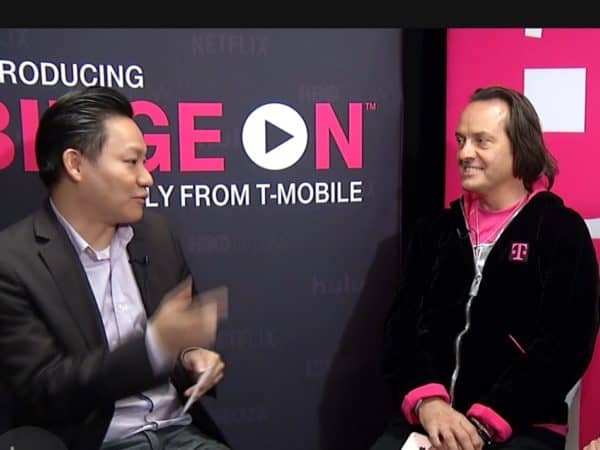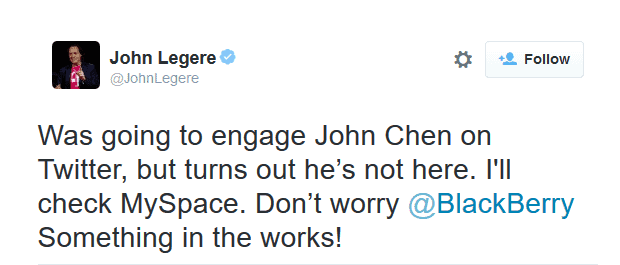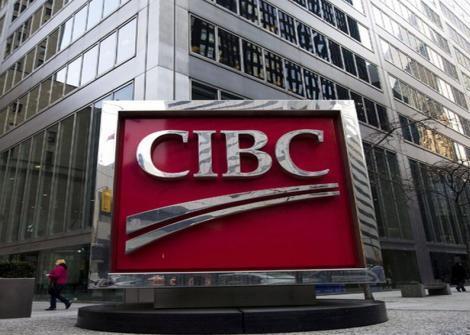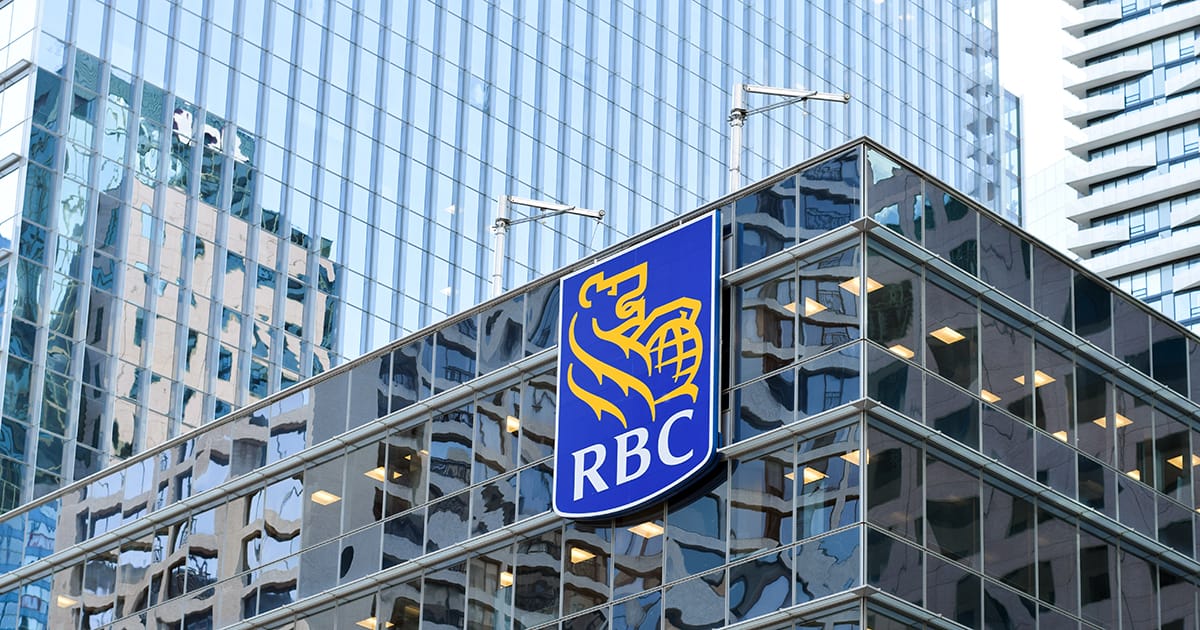T-Mobile CEO John Legere thinks BlackBerry is ready for a comeback


After trading barbs with its rookie CEO last year, outspoken T-Mobile boss John Legere is suddenly warming to BlackBerry.
In a word association exercise with CNET’s Roger Cheng recently, Legere broke the rules of the game when asked to associate one word with the term “BlackBerry”.
“On a comeback,” said Legere.
The sentiment is a far cry from that of last year when BlackBerry CEO John Chen took to his company’s blog to complain about a T-Mobile promotion that encouraged subscribers to trade in their BlackBerry for an iPhone. Chen said the deal was not in keeping with the behaviour of a long-time business partner.
“What puzzles me more is that T-Mobile did not speak with us before or after they launched this clearly inappropriate and ill-conceived marketing promotion,” said Chen. “To T-Mobile, I would like to remind you that our long-standing partnership was once productive and profitable for both BlackBerry and T-Mobile. I hope we can find a way forward that allows us to serve our shared customers once again. Notwithstanding the current challenge, we remain very excited about BlackBerry’s future.”
Legere’s response was one for the ages and it added fuel to the fire for those who believed that the BlackBerry brand was yesterday’s news.
“Was going to engage John Chen on Twitter, but turns out he’s not here. I’ll check MySpace,” he tweeted.

Cheng reports that a thaw between the two companies happened earlier this year around the BlackBerry Classic. It appears the pair are now fully back in the mutual admiration society, with a T-Mobile spokesperson telling CNET that they are talking to BlackBerry and has imminent news on the relationship. Chen, meanwhile, says he is “energized” by the prospect of a renewed relationship.
The love-in between BlackBerry and T-Mobile comes against the backdrop of the release of what some think might be the company’s last ever stab at hardware. Earlier this month, BlackBerry released the PRIV, the company’s first Android phone.
BlackBerry is hoping it can sell PRIV to Android users who are concerned with security, but in the past that tact has failed to lure consumers away from devices that are less concerned with privacy, such as the iPhone. BlackBerry’s David Kleidermacher recently cited a recent study from researchers at Cambridge University that found almost nine out of 10 Android devices are exposed to a critical vulnerability that puts customer’s communications and personal data at risk.
“It’s not a good situation,” said Kleidermacher. “However, we at BlackBerry think we can do better.”
But some think the fact that Blackberry decided to forego its own operating system in favour of Android’s means the writing is on the wall.
“I do think this is their final experiment,” Daniel Bader, the editor-in-chief of device website MobileSyrup told the CBC recently. “It has all the trappings of a last gasp.” That sentiment was echoed by The Verge’s Dan Seifert, who says the PRIV may be BlackBerry’s last smartphone if it is not a success.
Chen, meanwhile, says the magic number is five-million. That’s the minimum number of devices he thinks BlackBerry needs to sell to stay in the hardware business. In interviews about the “are they in or are they out” question, the BlackBerry boss has wavered, but sounds mentally ready to move on.
“Anyone who has been watching closely what I’ve been trying to do at BlackBerry has surely heard me say that we would not stay in the device business if we were not profitable,” he said earlier this year. “That said, we are doing everything possible to make our devices profitable.”
John Chen joined Twitter in May of this year and does not have a MySpace page.
Nick Waddell
Founder of Cantech Letter
Cantech Letter founder and editor Nick Waddell has lived in five Canadian provinces and is proud of his country's often overlooked contributions to the world of science and technology. Waddell takes a regular shift on the Canadian media circuit, making appearances on CTV, CBC and BNN, and contributing to publications such as Canadian Business and Business Insider.


